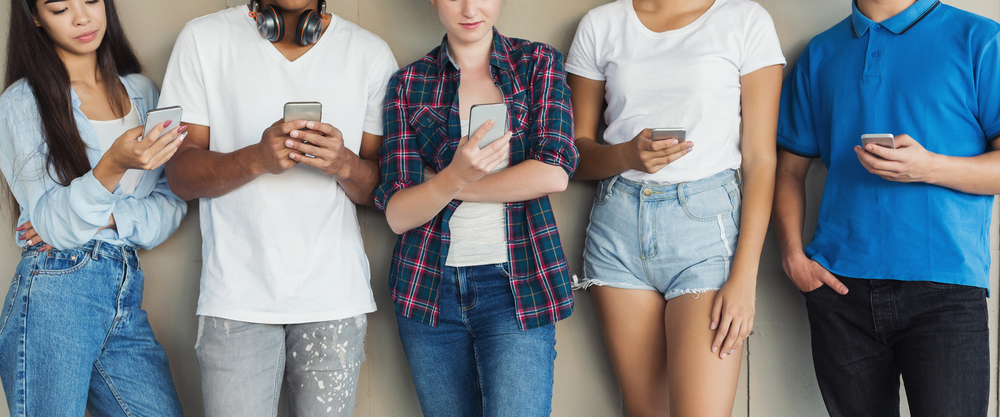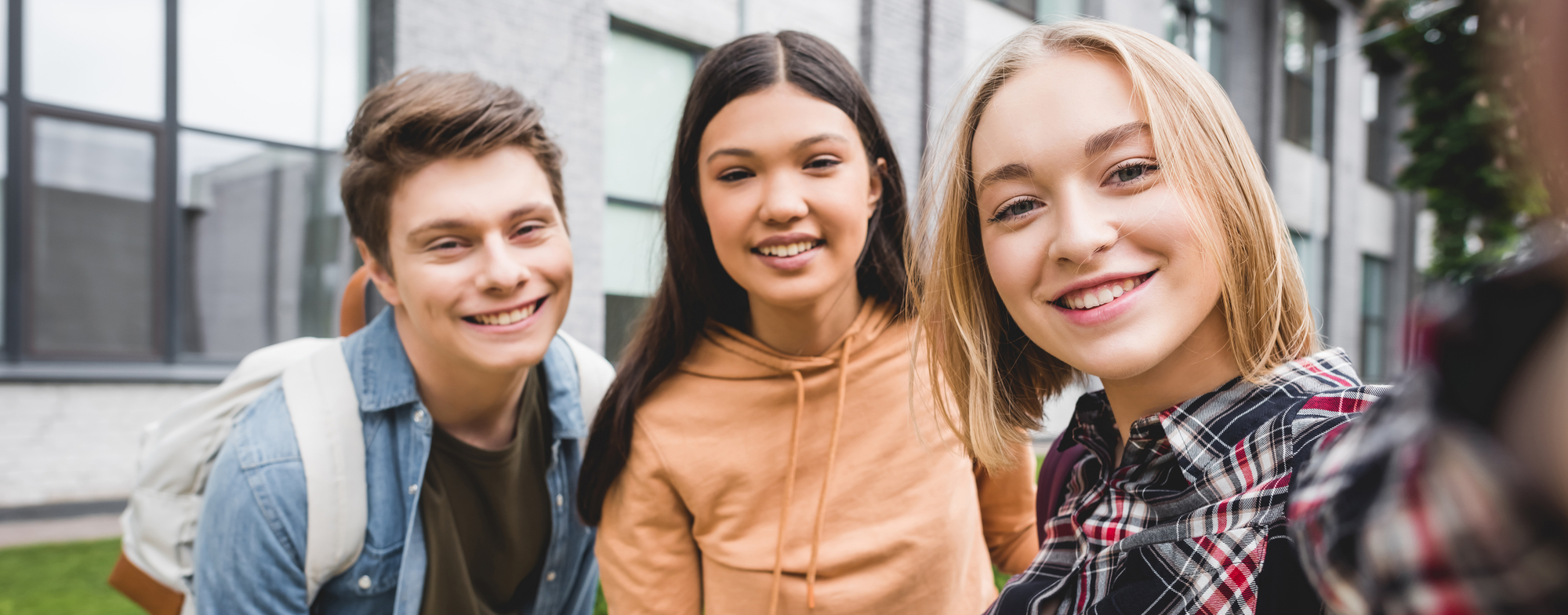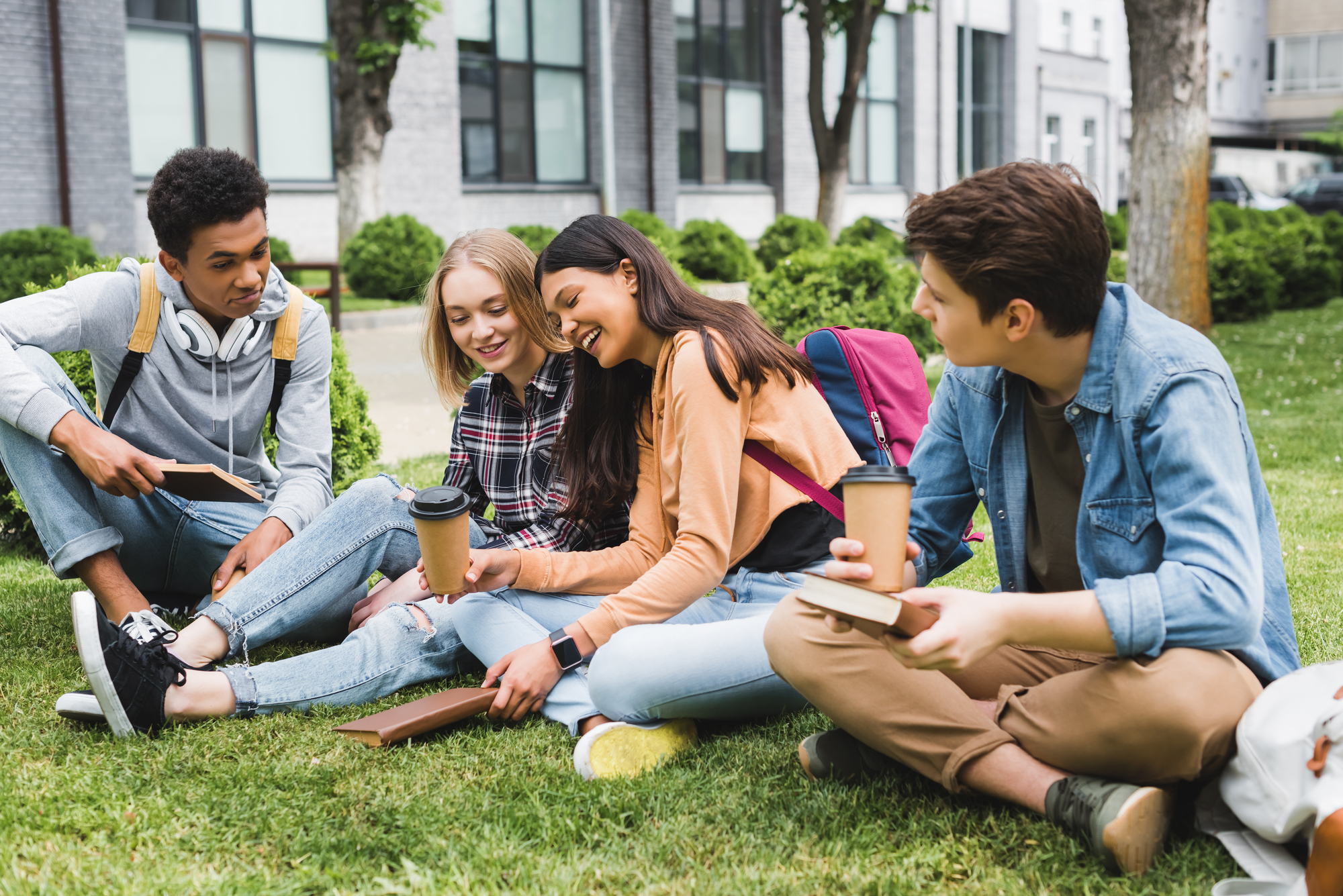
Social Media and Its Impact on Body Image
Emily Hoover,
Health Educator at the Poe Center
A healthy, positive body image can put a smile on your face and a spring in your step. It is important. Conversely, a negative body image can tear down your confidence, make every hill a mountain, and the mirror on your wall can become filled with doubt. The discrepancy is impactful at any stage of life, especially adolescence.
Adolescence is a pivotal stage in developing body image. Between the ages of 12 and 18, there are multiple cultural, social, physical, and psychological factors that interact to shape a young person’s body image. Social media is one of those factors. Social media has become an integral part of most people’s daily lives, especially for adolescents. It has revolutionized the way people communicate, share information, and connect with others. However, it has also brought about some negative consequences, particularly in terms of body image.

Social media platforms are filled with images of people with “perfect” bodies, which are often graphically manipulated and represent unrealistic standards and unhealthy comparisons. This can contribute to low self-esteem and increase risk factors for mental illnesses, such as depression and body dysmorphic disorder (BDD), a mental disorder in which a person’s thoughts are consumed with self-appearance and a distorted self-perception. There has been a rising surge of body dysmorphia in young people over the past several years.1
This increase in body-image issues correlates with an increase in availability and use of online social media applications. Tik Tok, Youtube, and Snapchat are among the most used apps by teens ages 13-172. Social media use has risen since the start of the COVID pandemic in 2019, with new research showing U.S. teens spend more than eight hours a day on screens for non-school-related activities.3
Increased use of social media may lead to an increase in comparing oneself to the images seen online. Although most people can be critical when they see a picture of themselves, when does that criticism go too far? Specifically, the use of filters and editing tools can lead to low self-esteem and depression4. Many people use photo editing filters in every picture they share. This can lead to, not only unrealistic expectations, but absolutely impossible ones. Adults can help teens be comfortable in their own skin. Remind them that posted photos are often doctored. Be a role model and limit your own use of filters. Try using some goofy filters with teens to show just how ridiculous the results can be.
How Teens Should Manage Social Media Use
It’s important for teens to learn how to manage their social media use to avoid the negative effects it can have on their mental health. Here are some suggestions:
1. Set reasonable limits: Talk with teens about how to avoid letting social media interfere with their activities, sleep, meals, or homework. Encourage a bedtime routine that avoids electronic media use and try to keep cell phones and tablets out of teens’ bedrooms 5.

2. Monitor social media accounts: Let teens know that you’ll be regularly checking their social media accounts. You can also use parental control apps to monitor their activity 6. Teens can monitor their own activity online and set limits on individual apps for themselves, as well. Have open conversations about use of social media accounts. Connect with your teen online and model positive use and interaction.
3. Encourage positive self-talk: Encourage teens to focus on their positive qualities and achievements instead of their appearances. Help them develop healthy self-images by reminding them that everyone is unique and beautiful in their own way. 7
4. Encourage physical activity: Encourage teens to engage in physical activities that they enjoy. This can

help them develop positive body images and improve their overall health. Try new physical activities together – disc golf anyone?
5. Encourage face-to-face interactions: Encourage teens to spend time with friends and family in person. This will help them develop social skills and build meaningful relationships2. Arrange social events with family and friends that include your teens. Perhaps attend a local athletic game or cultural event with friends! Or host a craft night with their friends?

In conclusion, social media can have a significant impact on body image, both positive and negative. It is important for teens to learn how to manage their social media use to avoid the negative effects it can have on their mental health. Encourage teens to focus on their positive qualities and achievements instead of their appearance, engage in physical activities that they enjoy, and spend time with friends and family in person. By doing so, they can develop healthy self-images and improve their overall well-being.
Featured Program:
Smart on Social
Teenagers live in a world of choices. Students will dig deeper into understanding online safety and why it is important to make good choices while using those platforms. This program empowers students by covering information about how to critically think when being influenced by the media, how social media affects your health and how to interpret real news and fake news. Participants will also receive internet safety tips to keep themselves and their families safe.
Program Participants: 11-18 years old
Program Length: 60 Minutes
Featured Resource:
KidsHealth
Nemours® KidsHealth® was founded in 1995. Since then, Nemours KidsHealth articles, videos, animations, print publications, and health instructions have had billions of visits. Nemours KidsHealth is the most-viewed site for dependable information on children’s health, behavior, and development from before birth through the teen years.

Featured Poe Event:
2023 PoeFest
You are invited to our FREE community festival to celebrate healthy choices! Please join us for fun, food, prizes, special guests, interactive theaters and great local entertainment.
Saturday, October 21, 2023

